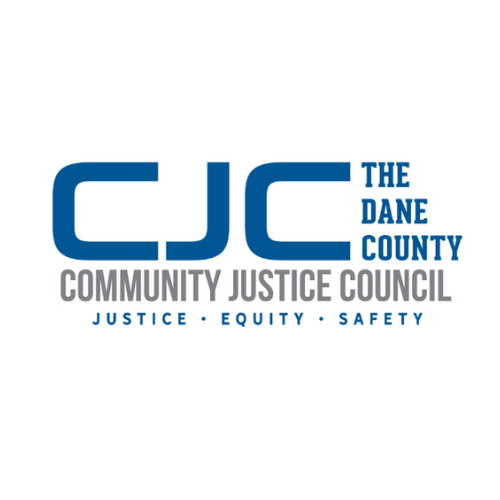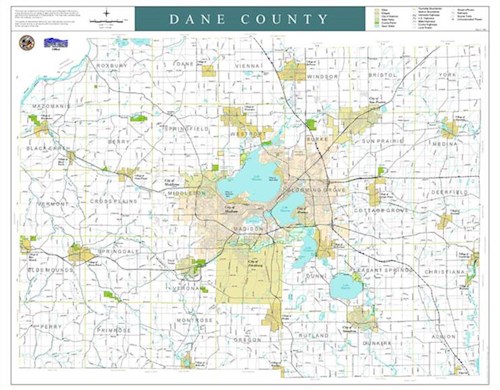

Dane County hosts a collaborative Community Justice Council (CJC) composed of executive level criminal justice leaders, including the Presiding Judge, Sheriff, District Attorney, Clerk of Courts, County Executive, and County Board Chair, as well as stakeholders from law enforcement, defense, municipal judiciary, and corrections. The CJC was created in Chapter 15 of the Dane County Code of Ordinances in 2008. In 2010, the CJC became a stronger, staff-supported collaborative council.
In July 2015, the CJC amended the Code of Ordinances to specify and update the mission of the CJC (as agreed upon by all members). It reads as follows: “The Dane County Criminal Justice Council shall: (a) provide an on-going forum for collaboration and coordinated leadership among criminal justice agencies, (b) Facilitate the implementation of effective, efficient, data-driven criminal justice policies and practices that maximize justice, equity, and the safety of the public, (c) Monitor and ensure accountability of the criminal justice system, (d) Provide program oversight for criminal justice initiatives.” (Dane County Ordinance 15.46)
In 2022, Dane County Ordinance Amendment 28 changed the name from Criminal Justice Council to Community Justice Council. This amendment also codified three CJC subcommittees: Behavioral Health, Pretrial Services, and Racial Disparities. It also added three community members—two with lived experience of the criminal justice system, one with expertise in behavioral health—as voting members to the CJC.
The Dane County CJC is served by the Equity and Community Justice Council Coordinator and Research & Innovation Team. They serve at the direction of the Council with the CJC coordinator supervising the work effort.
Over the last decade, Dane County has crafted innovations to become more equitable and evidence-based. These innovations include reorganization of the Drug Court, increased usage of the Deferred Prosecution Unit (DPU), addition of a Deferred Prosecution Opiate Case Manager, restorative justice options for 12-16 year-olds facing a Madison municipal citation (non-traffic), restorative justice options for 17-25 year-olds facing misdemeanor charges, streamlining processes, and championing collaboration.
The Dane County CJC also partners with criminal justice experts from across the nation to help inform and enhance policy decisions. Our partners include the Institute for Justice Planning, the Sentencing Project, Center for Effective Public Policy, Advancing Pretrial Policy & Research, Urban Institute, Government Alliance on Racial Equity, the Vera Institute of Justice, and MDRC.
As the CJC develops performance measurements and “markers of success,” we look toward newly forged data-sharing agreements to assist in a performance management plan that includes a process for conducting cost-benefit analysis and evaluation of results across all systems. The Community Justice Council has three formal subcommittees to assist policy and procedure analysis: the Pretrial Reform Subcommittee, the Racial Disparities Subcommittee, and the Behavioral Health Subcommittee. To view agendas and minutes for these subcommittees, please follow the links below.
Subcommittees